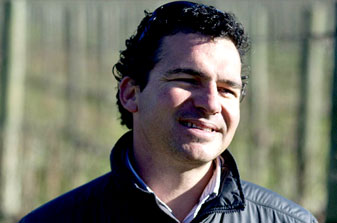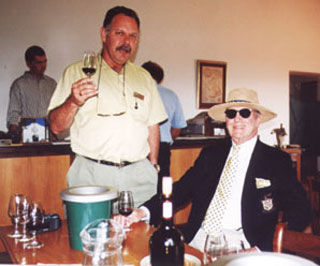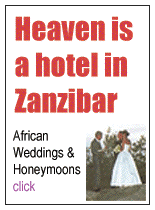|

AFP
May 9, 2015
SOUTH
AFRICAN "BUSH VINES" NAMED WORLD'S BEST WHITE
WINE
ROME - A South African chenin blanc made by
"bush vines" champion Johan Joubert was
named best white at one of the world's top
wine competitions.
This year's Concours Mondial de Bruxelles
awarded the
2013 Kleine Zalze Family Reserve, a wine
produced from non-trellised vines at an
estate near Stellenbosch in the heart of
South Africa's winelands.
Bush vines are less productive than
trellised vines because they afford a
greater canopy of leaf coverage to the
fruit. But their advocates say the lower
yield is worth it because the berries have
much thicker skins and therefore produce
more concentrated flavours.
More than 320 experts from more than 50
countries chose the winning wine on Friday
at the 22nd edition of the competition,
which was founded in Belgium in 1994 and has
been hosted in different European countries
since 2006.
Joubert has been a strong advocate of South
African producers moving towards more
concentrated chenin blanc wines, rather than
relying on mass market sales of lighter and
cheaper versions.
Since making the award-winning wine at
Kleine Zalze he has moved on to work for
Boland Cellar in the Western Cape town of
Paarl, where he is also winning plaudits for
his chenin blanc.
The winner of the best red was a Nican 2008
Montepulciano d'Abruzzo from the Orsogna
winery in the mountainous region of Abruzzo,
east of Rome.
Montepulciano is one of the workhorse grapes
of Italian viticulture, high-yielding and
easy to convert into soft, quaffable wine.
Increasingly however a new wave of producers
are exploiting its potential to deliver
something much more concentrated and
complex.
France claimed a double at the competition
with the best sparkling and best rose
prizes.
The top bubbly award went to a 1999 vintage
pink champagne from Charles Heidsieck, while
the explosion in quality wines produced in
the Languedoc-Roussillon area was recognised
with Gerard Bertrand's Cote des Roses 2014
picking up the prize for best rose.
Classical music adds delicate
notes to South African wine
Stellenbosch, August 25, 2014

Carl van der Merwe, winemaker and general manager at at
De Morgenzon wine estate, stands at DeMorgenzon wine
estate in Stellembosch, some 50 kms north of Cape Town.
(AFP Photo)
Everybody knows that wine should have a good
nose, but one South African vintner wants
the world to believe it also needs a good
ear.
In a gentle valley near Stellenbosch in the
Western Cape, the vineyards at DeMorgenzon
estate are serenaded by baroque and early
classical music day and night, all year
round.
And once the grapes are harvested, the
maturing wine gets the same treatment in the
cellar.
Winemaker and general manager Carl van der
Merwe smiles when asked whether he is seen
in the same light as Britain's Prince
Charles, who was scorned for admitting that
he talks to his plants to encourage their
growth.
"We have a lot of people that are very
sceptical about what we are doing and why
we're doing it, particularly neighbours" he
says.
In South Africa the award-winning wines are sold in
the mid-to-upper price range, retailing from about
R75 ($7.5) up to R250 ($25)a bottle. DeMorgenzon
exports to the United States and to Europe, where
the wines sell from about 10 euros to 18 euros.
Between the vineyard and the retailer, however, the
wine matures in oak barrels while "listening" to the
same music as the vines it came from.
Surely, Van der Merwe is asked, even if one accepts
that a life form like a plant can respond to music,
it is a bit much to expect the same of a liquid?
Happily, he points out that "wine is alive with
various bacteria, and the fermentation process
itself is done by living organisms".
Perhaps in time, if the idea catches on, wine
critics will be telling us to look out not only for
"notes of berry and mushroom" in our glass of red or
white, but "notes of Bach and Mozart" as well.
But he is a firm supporter of the musical approach
adopted by the owners of the estate, prominent
businesswoman Wendy Appelbaum and her music-loving
husband Hylton, who founded Classic FM radio in
South Africa.
The Appelbaums bought the estate in 2003 and
introduced music in 2009, following in the footsteps
of farmers who have serenaded everything from cows
to pigs in an attempt to improve production and
quality.
While there was no scientific proof of music's
effects on wine, they thought there was enough
evidence of the positive influence of dulcet sound
to try to combine their love of both.
"We do things in life sometimes because we believe
in them and often we find out later that there was a
very strong scientific reason why those things
worked," Van der Merwe says.
So if wine and song go together in more ways than
one, why does it have to be baroque rather than
rock?
"Well, we only use baroque and classical for the
reason that those two have mathematical rhythm and
those sound waves have been proven to have a
positive effect on natural life," he says.
Van der Merwe, 37, is no wild-eyed evangelist trying
to spread a message about music and plants, but has
a modest belief that the music works -- helped along
by the terroir and, of course, his winemaking
skills.
He says he sees a difference the music makes through
the slower and more regulated growth patterns on the
vines where it is focused -- a trial block of four
hectares out of the 55 hectares under vines on the
estate.
"The Syrah that comes from here is very different to
anywhere else on the property and it's much more
pronounced in terms of flavour, has smoother tannins
and tends to have slightly lower alcohol and really
is just a much more balanced, much more approachable
wine," he says.
'It's about waves'
Ten regularly spaced loudspeakers carry the
music of Bach and Mozart, among many others, across
the vineyards, producing a surreal effect in the
quiet valley.
Van der Merwe points out that the farm is like an
amphitheatre scooped from the mountains, and the
music's influence extends the length and breadth of
the estate.
"It is not so much about the audible music that we
can hear, its more about sound waves," he says.
The music also affects the farmworkers, of course,
though Van der Merwe says wryly that many seem to
prefer their own playlists on their mobile phones.
But one of the local women in a pruning team told
AFP: "We like the music. It's nice to work here
because it lifts us up and sometimes you feel like
dancing."
Spring is approaching in the Cape, and the team of
pruners is moving slowly through the vineyard,
preparing it for the next growing season.
The estate has a strong focus on chenin blanc and
chardonnay, but also produces classic reds syrah and
pinot noir.
South
Africa's Cape Wine Country
 During
our 26th ATA International Congress we had several
occasions to visit the historic wine country
surrounding Cape Town, and count that experience
among our most memorable short
trips.
Our
first Wine Country tour that year was in the
company of the Davidowitz
brothers,
Sellwyn and Robert. Both operate tour companies on
the Cape, and we couldn't recommend anyone more
knowledgeable of the area, its history, and where
to enjoy the best food and wines. Be sure to sample
the nation's award winning wines during your stay.
South Africa's vintages are among the world's best.
Some specialties include lovely Chardonnays, Pinot
Noir, Merlot, Cinsault, Riesling, Shiraz, Sauvignon
Blanc, Caberbet Sauvignon and Pinotage varietals.
You will find that one of the most pleasant ways to
enjoy South African wine is on a visit to the
scenic wineland of the Western Cape. Few places in
the world are as stunning as these lush valleys.
Towering mountains are a dramatic backdrop for the
rows of grapevines and giant
oaks. With the
current exchange rate of eight Rand to 1$ US you
will want to sample the many varieties of ethnic
cuisine available in Cape Town and area. After all,
its the pioneer city of the Rainbow Nation, whose
restaurant menus feature the best from every
culture. The photo on the left featuring streetside
dining at the Cafe Del Mar is courtesy of Cape Town
Tourism. Here's part of what the folks at Cape
Tourism have to say about the pleasures of dining
in their great cosmopolitan city: During
our 26th ATA International Congress we had several
occasions to visit the historic wine country
surrounding Cape Town, and count that experience
among our most memorable short
trips.
Our
first Wine Country tour that year was in the
company of the Davidowitz
brothers,
Sellwyn and Robert. Both operate tour companies on
the Cape, and we couldn't recommend anyone more
knowledgeable of the area, its history, and where
to enjoy the best food and wines. Be sure to sample
the nation's award winning wines during your stay.
South Africa's vintages are among the world's best.
Some specialties include lovely Chardonnays, Pinot
Noir, Merlot, Cinsault, Riesling, Shiraz, Sauvignon
Blanc, Caberbet Sauvignon and Pinotage varietals.
You will find that one of the most pleasant ways to
enjoy South African wine is on a visit to the
scenic wineland of the Western Cape. Few places in
the world are as stunning as these lush valleys.
Towering mountains are a dramatic backdrop for the
rows of grapevines and giant
oaks. With the
current exchange rate of eight Rand to 1$ US you
will want to sample the many varieties of ethnic
cuisine available in Cape Town and area. After all,
its the pioneer city of the Rainbow Nation, whose
restaurant menus feature the best from every
culture. The photo on the left featuring streetside
dining at the Cafe Del Mar is courtesy of Cape Town
Tourism. Here's part of what the folks at Cape
Tourism have to say about the pleasures of dining
in their great cosmopolitan city:
Flying
Gourmet USA
Moroccan
Menu
Cote
Cuisine
Take
a leisurely drive through one of the many wine
routes just minutes out of Cape Town. Winemakers
welcome you for cellar tours and tastings. You will
see historic wine towns graced with lovely Cape
Dutch and Victorian buildings, charming guest
houses, top-notch restaurants and interesting
museums and shops. The Constantia wine route is
popular for both beauty and historical
significance. Established more than 300 years ago
Groot Constantia is a superb example of a Cape
Dutch manor house.If
you want to provide comments, an item or news
release to this column on line or in print, send it
to "The Flying Gourmet" at airhwy@dowco.com
Above:
Tour operator Robert Davidowitz discusses wines in
Franzhoek with Robert D'Angelo of Philadelphia.
Photo by Muguette Gofurani.
 Tulbagh
goes Dutch:From
clogs to croquetjes, boerenkool to bulbs in full
bloom ‰ Indulge in all things deliciously
Dutch when the quaint town of Tulbagh enlivens its
cultural heritage with nostalgic activities,
entertainment by singing Netherlander Stef Bos and
endless tussendoortjes during its annual Tulbagh
goes Dutch Festival from 12 to 13 April. Festival
sponsor, Drostdy Hof wines, brings Dutch icon Stef
Bos into its home at the stately De Oude Drostdy
Museum and invites festival-goers to an enchanting
Garden Concert on its historic grounds at 16h00 on
Saturday afternoon, 12 April. During the Festival,
visit this neo-classical museum on tractor rides
from the hub of the festival in historic Church
Street. Enjoy the fine collection of carefully
restored period furniture and indulge in
spectacular wine tastings by candelight in the
underground cellar. More-> Tulbagh
goes Dutch:From
clogs to croquetjes, boerenkool to bulbs in full
bloom ‰ Indulge in all things deliciously
Dutch when the quaint town of Tulbagh enlivens its
cultural heritage with nostalgic activities,
entertainment by singing Netherlander Stef Bos and
endless tussendoortjes during its annual Tulbagh
goes Dutch Festival from 12 to 13 April. Festival
sponsor, Drostdy Hof wines, brings Dutch icon Stef
Bos into its home at the stately De Oude Drostdy
Museum and invites festival-goers to an enchanting
Garden Concert on its historic grounds at 16h00 on
Saturday afternoon, 12 April. During the Festival,
visit this neo-classical museum on tractor rides
from the hub of the festival in historic Church
Street. Enjoy the fine collection of carefully
restored period furniture and indulge in
spectacular wine tastings by candelight in the
underground cellar. More->
Visit the picturesque wine route of Franschoek, or
"French Corner", also rich in history. In 1688 the
French Huguenots developed the area, contributing
their knowledge of wine-making. Here you will enjoy
wine cellar tours, gourmet restaurants and upscale
accommodations.
A
cluster of wineries surrounds the historic
university town of Stellenbosh, the second-oldest
European settlement in South Africa and an
architectural gem. You will marvel at the
well-preserved Cape Dutch, Georgian, Victorian and
Regency buildings, many of which are national
monuments. Enjoy a drive down the oak-shaded Main
Street of Paarl, a winelands town with tine Cape
Dutch buildings.
This
Bergriver Valley wine route features historic
museums, find restaurants and a nature reserve.
Other routes include Durbanville, nestled on the
slopes of the Tygerberg Hills, and compact
Wellington - both distinguished by award-winni
ng wines. The Worcester route is located in the
beautiful Breede River Valley. Be sure to see
numerous tourist attractions and breathtaking
scenery on the Swartland route.
Hotels,
Resorts
Astron
Resort
Caesar's
Emperor
Cape
Hotels
Exeter
Lodge
Sandton
Towers
Sun
International
FOOD
AND WINES
Flying
Gourmet
Cape
Wines
Gourmet
Festival
Conservator
Dining,
Cape
Dutch
Festival
Five
Flies
Wine
Country
Wine
Tours

|
|



